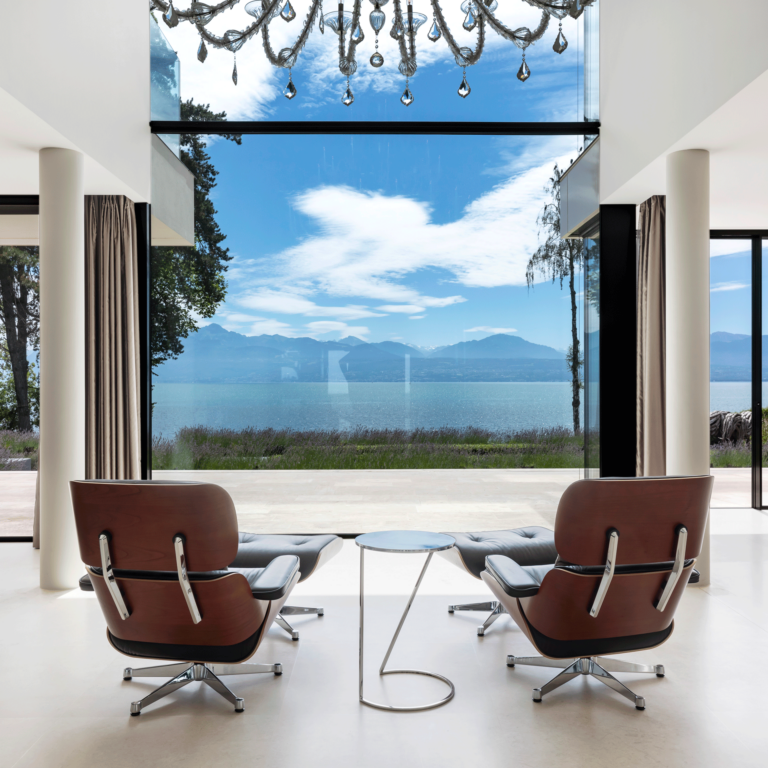Off-market properties in luxury real estate
Reading time — 4 minutes

What is an off-market property?
Off-market refers to items that are outside the conventional channels of the market. In the world of property, this translates into properties, such as houses or flats, that are not listed in publicly accessible property advertisements, whether on websites or in specialist property magazines. These properties are characterised by their private nature and discretion, remaining outside the field of vision of the general property market.
Often mentioned in the field of luxury real estate, although its exact definition is not always clear, off-market is an approach to selling that is specific to certain categories of luxury property. On the one hand, it encompasses prestige properties that are offered for sale but are absent from the digital platforms of estate agents and traditional property portals. On the other hand, it also includes high-end residences that their owners plan to sell only when faced with an exceptionally attractive offer. However, the use of off-market advertising is particularly relevant when the market is tight, with few properties for sale and high demand: in the presence of a large number of buyers, communicating about a property becomes superfluous.
Off-market property: exceptional properties and discreet sales
Entry into the world of off-market property often begins with the signing of a mandate. This agreement is crucial in guaranteeing total discretion throughout the sales process. Putting an exceptional property on the market can quickly attract interest and, sometimes, unwanted solicitations from estate agents.
What’s more, a luxury property can lose its appeal if it is offered by several agencies, as it is no longer considered exclusive, which can reduce its appeal to potential buyers. The aim is to avoid overexposing the property so that it retains all its potential appeal.
Finally, the sale of such a property can be surrounded by rumours and speculation, potentially damaging the owner’s reputation.
Marketing off-market properties therefore requires in-depth knowledge of the property sector and a discreet approach. This process can take several months to maximise the chances of finding a suitable buyer. An exclusive sales mandate is usually drawn up for a period of one year. This period makes it possible to follow up potential customers effectively and maintain consistent communication regarding the sale of the property.
Advantages and disadvantages of off-market property
There are distinct advantages and disadvantages to buying a property via the off-market.
The disadvantages of off-market property
Despite its name, the off-market is still governed by the laws of supply and demand. As a result, the rare and unique properties available on this market tend to be more expensive. The limited number of properties available in each price bracket often encourages owners to set higher prices than on the conventional market. As a result, time-to-market is often longer. To navigate this market and potentially negotiate prices, the expertise of a flat hunter can prove invaluable.
The advantages of off-market property
One of the main advantages of off-market is the reduction in competition. As these properties are not listed on traditional sales channels, there are generally fewer potential buyers, which can work in your favour. What’s more, the off-market is often home to unique and atypical properties that cannot be found on the traditional market, which is particularly attractive to those looking for properties that stand out from the crowd. Finally, this type of sale satisfies both buyers and sellers: the former because of the feeling of exclusivity associated with an off-market sale, the latter because they benefit from a confidential transaction.
French-speaking Switzerland leads the off-market market
In the Geneva region, Anières and Hermance have long been epicentres of the off-market, prized for their exclusive character. Recently, they have been joined by towns such as Cologny, Meinier, Vandoeuvres, Choulex and Vésenaz, which attract buyers who want to stay close to Geneva. In the canton of Vaud, the Terre Sainte region, with towns such as Commugny, Mies and Founex, continues to attract buyers. Closer to Lausanne, towns such as Saint-Prex, Morges, Pully, Lutry and La Conversion are also highly sought-after, as is Montreux, renowned for its breathtaking views over Lake Geneva and its exceptional living environment.
How do I buy an off-market property?
Access to the off-market, which is by nature less transparent and accessible, can be complex. The assistance of a property expert is often crucial in unearthing off-market properties.
The importance of the property network
As mentioned above, off-market properties represent only a fraction of the real estate on offer. If the property you’re looking for is in this segment, your estate agency’s network becomes an invaluable asset.
Investment in time and responsiveness
Searching for an off-market property requires an investment of time and a high level of responsiveness. If the property you’re looking for exists, it’s crucial to be among the first to express an interest.
Don’t forget the traditional property market?
Limiting yourself exclusively to properties off-market via your estate agent can have a number of disadvantages:
- Risk of frustration: if the property you want is not available on the off-market, the search can be long and fruitless.
- Missed opportunities: given that most properties are on the traditional market, it is essential to focus your efforts and attention on this segment too.
The many advantages of an estate agency for off-market properties
Although the network, time and responsiveness are crucial to finding a property off-market, these elements are just as important for searching on the traditional market. A real estate agency such as FGP Swiss & Alps offers much more than a simple property search, as it provides comprehensive expertise tailored to your specific needs in the prestige property sector.


